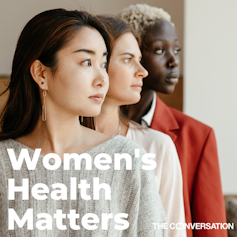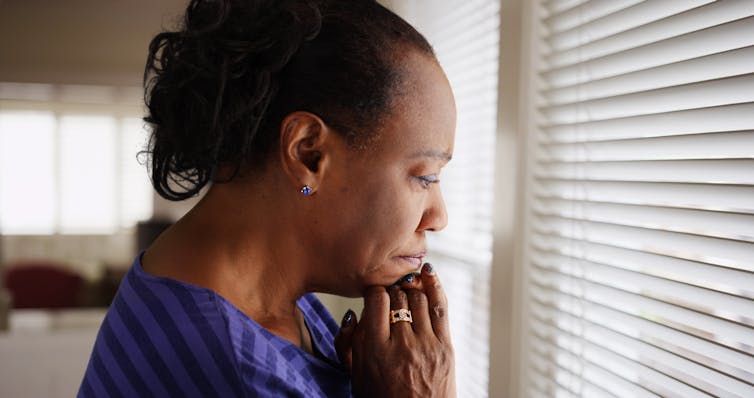Dr Rachel Moseley writes for The Conversation about the gender differences in autism and the impact of late, or no, diagnosis for autistic people…
Like many women, I didn’t know I was autistic until adulthood – how late diagnosis can hurt mental health and self image

Rachel Moseley, Bournemouth University
For many women, adult diagnoses of autism are “a light in the darkness”, an epiphany of self-understanding. My “lightbulb moment” came in my late 20s. “They thought you were autistic,” my mum mused when I told her I was embarking on an academic career in autism research.
As a child, I was painfully aware of being different. The adults and the children around me had noticed my strangeness, my inability to fit in. It turned out that autism had been suggested to my mother – but then dismissed by a child psychiatrist. I didn’t fit what was known about autism. Although socially gauche, I’d mastered eye contact and was fairly eloquent.
A few years after my mum had made that off-the-cuff comment, I was re-evaluating my life in the context of a shiny new diagnosis.
Researchers are learning more and more about the way autism differs in people of different sexes and genders. As they do so, the lights are coming on for more of us who’ve felt lost in the world.
The female face of autism
There is no one type of autistic person. The key features of autism – differences in the way we think, communicate and interact with others – show up in more diverse and subtle ways than the limited examples suggested by the diagnostic criteria. This is often true in autistic girls.

This article is part of Women’s Health Matters, a series about the health and wellbeing of women and girls around the world. From menopause to miscarriage, pleasure to pain the articles in this series will delve into the full spectrum of women’s health issues to provide valuable information, insights and resources for women of all ages.
You may be interested in:
Birth trauma is a growing problem — experiencing it myself revealed how few people understand it
While they struggle with social understanding, many autistic girls are adept mimics of the social behaviour of other people. In the way they speak and the things they talk about, they are more similar to neurotypical children than autistic boys are. This may explain why, on first impression, people tend to underestimate autistic girls’ difficulties.
In comparison to autistic boys, the conversation of autistic girls tends to be more social in nature, focusing more on the people and friendship groups around them. Their interests tend to be more social, involving fictional characters, animals or celebrities rather than non-living objects. Tellingly, they express greater longing for the friendships and relationships which often elude them.
As they grow, some girls learn scripts to use in social situations, and develop a passive way of behaving with others that focuses on making the other person feel comfortable. Many autistic girls and women engage in this kind of “social camouflaging” constantly in order to seem acceptable to others.
The subtleties of autism in girls mean that they’re diagnosed significantly later than boys. In part, this reflects lack of awareness in the professionals who typically signpost children to autism services. However, others will be passed over because diagnostic assessment tools are less sensitive to autism in girls with cognitive abilities in the normal range.
The price of being overlooked
Undiagnosed autistic people are often painfully aware of their inability to fit in and to do the things that others do easily. If no one gives you an explanation, you’re left to find one yourself.
I knew as a teenager that I must be fundamentally bad, since I was bullied and had no friends at school. Autistic people I’ve worked with in my research have similarly blamed themselves for a lifetime of struggling and being abused, pinning these things on personal failings.

Rocketclips, Inc./Shutterstock
Across research studies, we late-diagnosed autistics are that societal subgroup with a history of academic struggles, employment problems, mental illness and relationship breakdowns. Our self-narratives are ones of inadequacy and failure.
Research has found that autistic girls and women have poorer mental health than autistic men. So are people who are diagnosed later in life compared to those diagnosed when young. These two facts are almost certainly interrelated. Autistic children who grow up without a diagnosis are unlikely to receive appropriate support. What’s more, they’re less likely to be viewed with compassion when they struggle.
Recognition of autism in girls and women may come at a crisis point. For some, this occurs in the pubertal chaos and complex social world of adolescence, where rates of anxiety and depression climb steeply in autistic girls. For some, it happens in the world-rocking turmoil of menopause, which appears to derail the coping skills and social camouflage that undiagnosed people rely on.
For some, it never happens. Undiagnosed autistic people are believed to constitute a high number of suicide deaths.
Further challenges
Beyond diagnosis, there are other ways that autistic girls and women face greater challenges than boys and men. While women generally suffer higher rates of sexual abuse, this risk is even higher for autistic women.
Autistic women often find their difficulties are poorly understood by employers, and must also contend with gendered pressures to perform emotional labour at work – taking on the unpaid and implicit responsibility to look after the emotions of others – or face damage to their reputation.
Perhaps unsurprisingly, autistic gender disparities in stress-related illnesses and risk of suicide are stark. Despite this, autistic women still face greater barriers to accessing help.
It’s uncertain to what extent these disparities can be traced back to the fundamental fact that autism is poorly understood and under-catered for in women and people of minority sexes and genders.
What we do know is that early diagnosis seems crucial for girls to grow up with positive self-image and lower risk of mental illness.
For we lucky women who got there in the end, a discovered autistic identity can be a life-changing gift. Finding ourselves means finding each other, release from self-blame and a new sense of belonging.![]()
Rachel Moseley, Principle Academic in Psychology, Bournemouth University
This article is republished from The Conversation under a Creative Commons license. Read the original article.











 Second NIHR MIHERC meeting in Bournemouth this week
Second NIHR MIHERC meeting in Bournemouth this week Dr. Ashraf cited on ‘Modest Fashion’ in The Guardian
Dr. Ashraf cited on ‘Modest Fashion’ in The Guardian NIHR-funded research launches website
NIHR-funded research launches website MSCA Postdoctoral Fellowships 2025 Call
MSCA Postdoctoral Fellowships 2025 Call ERC Advanced Grant 2025 Webinar
ERC Advanced Grant 2025 Webinar Horizon Europe Work Programme 2025 Published
Horizon Europe Work Programme 2025 Published Horizon Europe 2025 Work Programme pre-Published
Horizon Europe 2025 Work Programme pre-Published Update on UKRO services
Update on UKRO services European research project exploring use of ‘virtual twins’ to better manage metabolic associated fatty liver disease
European research project exploring use of ‘virtual twins’ to better manage metabolic associated fatty liver disease